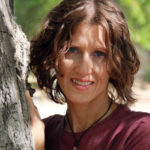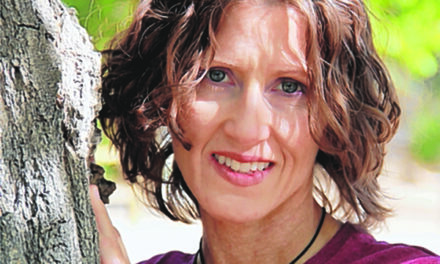In the last five days of 2021, we lost two Americans whose lives and works encouraged people across the world to live in harmony with animals and our planet.

Colleen Dougherty
Betty White, acclaimed actress and animal advocate, died on Dec. 31, just 17 days short of her 100th birthday.
Edward O. Wilson, renowned biologist, naturalist and ecologist died on Dec. 26. He was 92.
White was born in California in 1922, the only child of parents who were “tremendous animal lovers.” Unlike the proverbial kid who comes home from school with a stray animal, White says it was often her parents who’d return from an outing with a new dog or cat in tow.
Betty’s mom told her that her acceptance into the family had depended on whether their cat, Toby, approved! White dreamed of being a forest ranger but girls weren’t allowed into that profession in those days.
Turning to her love of writing, she starred in a high school play she’d written, and discovered her love for acting. For the next seven decades, Betty White walked in both worlds simultaneously, using her radio and TV shows, her energy and her resources educating people and funding projects to improve animal welfare and protect endangered species.
Her 1970’s TV program, “The Pet Set,” educated viewers about animals and the bonds that are possible between us. In the same decade, she began an alliance with Morris Animal Foundation, which developed the FeLV and Potomac Horse vaccines, and introduced pain management protocols into veterinary medicine.
An ambassador for American Human, Betty launched the “no animals were harmed” standard for the movie industry, and ignited a fund supporting animals harmed in ecological disasters from oil spills to wildfires.
The LA Zoo called White, “a constant and compassionate advocate for vulnerable animals.” She was instrumental in improving habitats there, especially for the primates, and served on its board for more than 50 years.
White also shared her talents and resources with various wildlife foundations, and in 2010 the U.S. Forest Service and Smokey Bear made her an honorary forest ranger. Four years later, another dream came true when her lifelong friend, Jack Hanna, of the Columbus Zoo in Ohio crowned her Guest of Honor at a ribbon cutting for the zoo’s “Heart of Africa” exhibit.
At the entrance (the “Betty White Way”) White tearfully told Hanna she felt she had “finally visited Africa.”
The gala event planned for White’s 100th birthday became “The Betty White Challenge” when social media fans suggested people donate $5 to their favorite animal charity in her honor.
Wilson, born in Birmingham Ala., in 1929, spent most of his time in nature “hunting” insects “because there were a lot of them and they were easy to catch.”
At age 7, a fishing accident injured his left eye, ironically allowing him to see things close up, including individual hairs on an insect’s body. Wilson used this to his advantage, identifying more than 400 species of ants, noting that, similar to human cultures, each behaved differently.
He witnessed how they recreated themselves if their environment became unfit for life, and he discovered pheromones — chemical language ants and other animals use to communicate. Wilson drew some harsh criticism along the way from sociologists, scientists and religious leaders. Some disagreed with his theory of sociobiology; that all species are genetically programmed to behave in certain ways — or at least prone to acquiring those ways.
Others seemed to resent the comparisons between ant societies and human societies. But Wilson used criticism as inspiration, searching for ways to bring science, sociology and religion together, believing that connection and interaction was the only way to preserve life on earth and, in fact, the planet itself. His 1978 book, “On Human Nature,” quelled some of the fire from sociologists, and “The Creation,” (2006) implored science and religion to “come together to save the Creation.”
Wilson understood the fragile balance of ecosystems and how easily they can be destroyed by the loss of even one life form, including an ant. He spoke at the nation’s capital in 1998 arguing for forest protection laws which, sadly, never passed.
In a 2001 Fox interview, Wilson stated, “Future generations will not forgive us for having so carelessly thrown away a large part of the rest of life on our watch.”
White is remembered as “a true champion for all animals,” and Wilson said he’d like to be remembered “as having carried the torch for at least a short while.”
May their bright torches continue to burn.
















